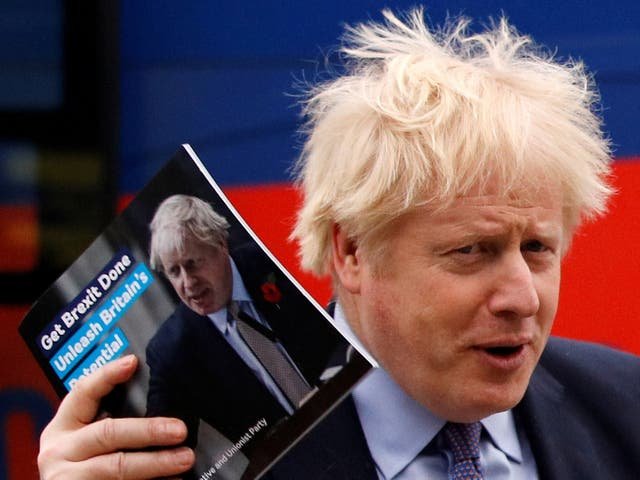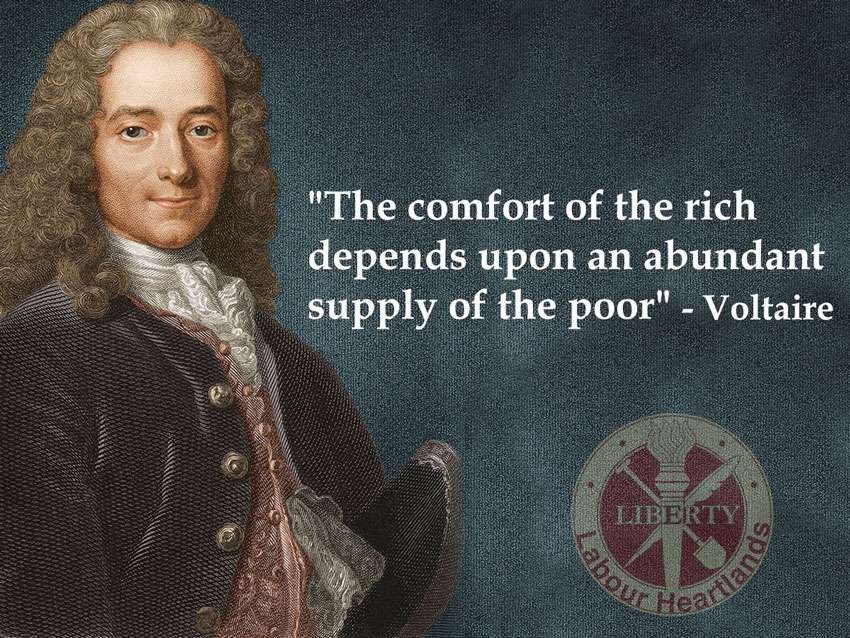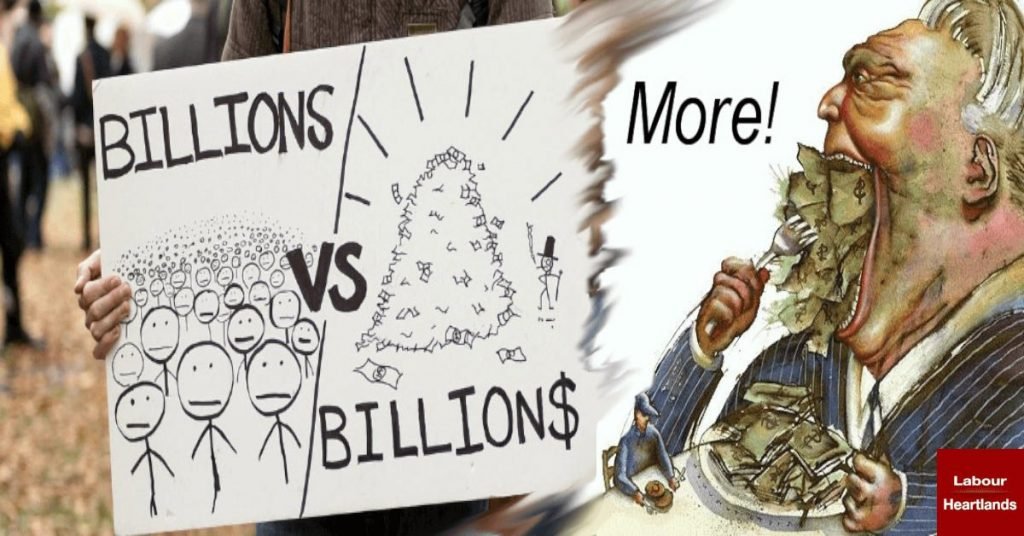The social care tax is not only unfair, it’s an insult and attack on all workers.
From April 2022, national insurance contributions (NICs) will increase by 1.25 percentage points for employed and self-employed people earning more than £9,568. A similar increase will also apply to employers’ national insurance payments. From April 2023, the higher NICs rate will apply to people working beyond the state pension age.
There are about 6.2m people earning less than £9,568 in 2021-22 will not have to pay the Health and Social Care Levy. Currently, employees pay no national insurance on the first £9,568 earned.
But for the majority including about 29m people caught by the NICs increase, the new regime will mean a notable hit to the pocket, with the government itself warning the measures could have an impact on people just about managing to cope financially.
The latest reforms have provoked a sense of unfairness around the treatment of generational wealth and income.
In today’s Britain, how you make your money matters. If you rely on earnings for a living, the government has asked that you contribute an extra 2.5% of your wages towards the costs of social care – ultimately the 1.25 percentage point increase to both employee and employer NICs will each come out of workers’ take-home pay.
If you’re self employed paid in dividends, you’ve been asked to contribute an extra 1.25% of your wages. But if you take your income in interest, rent, capital gains or pension annuity you’re effectively exempt from the new levy.
This increase in national insurance is focused on workers, since it only affects those with employment-related earnings.
People receiving only pension income will not be affected by the changes. Landlords who have not incorporated into a company will also be left untouched, along with investors holding wealth generated from capital growth, as opposed to those receiving dividends.
The Manifesto Breaking tax rises to fund social care unveiled by the government this week were nothing but an insult that widens the poverty gap.

“We promise not to raise the rates of income tax, national insurance or VAT. This is a tax guarantee that will protect the incomes of hard-working families across the next Parliament,” reads the manifesto.
Poorer earners have been disproportionately hit during the covid pandemic.
Covid-19 does not strike at random—mortality is much higher in elderly people, poorer groups, and ethnic minorities, and its economic effect is also unevenly distributed across the population. The economic fallout is likely to be felt for years. Without concerted preventive action worse off families and communities, have been disproportionately affected, increasing wealth and health inequalities in the UK and globally.
Even before covid-19, extremely disturbing trends were emerging in England. Growing child poverty, homelessness, and food poverty led to an unprecedented rise in infant mortality, mental health problems, and stalling life expectancy, especially for women in the poorest areas and cities. These were the same areas where 10 years of austerity measures had hit the poorest groups the hardest.
Larger cuts in government funding to local authorities with higher proportions of children in poverty meant a reduction in spending on vital preventive services in areas where they were needed most. The pandemic arrived in the middle of this worrying scene and amplified existing inequalities.
Although food poverty increased, with free school meals—an essential nutritional boost for many low income families—having to be replaced by emergency measures to prevent children going hungry during school closures. Government support for this scheme has been precarious, and at times the measures have been inadequate to maintain the health of growing children.
Rising demand for universal credit exposed the inadequacy of current levels of benefits. The UK government increased universal credit payments by £20 a week to compensate for extra expenses during lockdown.
Anti-poverty experts welcomed the £20 weekly increase in payments for those claiming universal credit (UC) and working tax credits, introduced by the government at the start of lockdown last year. Now, claimants are receiving texts and notifications telling them their payments will be cut at the end of September.
Now the same Anti-poverty campaigners and MPs warned the cut will be devastating for millions of families facing a financial cliff-edge, especially with the furlough scheme also due to end. Even former Conservative welfare ministers have written to the chancellor urging him to make the £20 increase permanent to avoid sending families into financial crisis.
In August, the prime minister told broadcasters: “My strong preference is for people to see their wages rise through their efforts rather than through taxation of other people put into their pay packets.”
But universal credit claimants who have jobs are falling into poverty too, research has shown. One in six working households were living below the breadline just before the pandemic and in-work poverty is at a record high.
Now on top of this, we are going to see the working poor receiving universal credit hit again this time on their national insurance contributions. If there is a feeling of unfairness it is because it is unjustifiably wrong.
This is not only an unfair hit on the poor it adds insult to injury.

During this pandemic, the rich have got richer and the poor a hell of a lot poorer. From 2019-2020 statistics have shown Billionaires have seen fortunes rise by 27% during the pandemic.
As the virus spread, central banks injected $9tn into economies worldwide, aiming to keep the world economy afloat. Much of that stimulus has gone into financial markets, and from there into the net worth of the ultra-rich. The total wealth of billionaires worldwide rose by $5tn to $13tn in 12 months, the most dramatic surge ever registered on the annual billionaire list compiled by Forbes magazine.
Among the billionaires, the biggest winners this year have been industrialists, whose wealth rose a staggering 44% in the three months to July.
“Industrials benefited disproportionately as markets priced in a significant economic recovery [after lockdowns around the world],” UBS said.
Tech billionaires have also had a good pandemic, seeing their wealth soar 41%. UBS said this was “due to the corona-induced demand for their goods and services” and social distancing accelerating “digital businesses [and] compressing several years’ evolution into a few months”.
Healthcare billionaires also benefited as the crisis put drug makers and medical device companies in the spotlight.
By comparison, over the same period, the wealth of British billionaires has risen by 168%.
Richest 1% have almost a quarter of UK wealth, study claims

According to a recent report from a thinktank, official figures have missed £800bn of private assets.
Almost a quarter of all household wealth in the UK is held by the richest 1% of the population, according to alarming new research that reveals a historic underestimation of inequality in the country.
The study found that the top 1% had almost £800bn more wealth than suggested by official statistics, meaning that inequality has been far higher than previously thought. Researchers said the extra billions was a conservative estimate and could well be more.
The call came from the Wealth Tax Commission, made up of leading tax experts and economists convened by the London School of Economics and Warwick University. The group said that targeting such a windfall tax at the richest households would be the fairest and most efficient way to raise taxes in response to the pandemic.
In November, a study commissioned by the chancellor also recommended reforming capital gains tax by slashing the annual allowance. The move, backed by the independent Office of Tax Simplification, would hit wealthy individuals with assets such as second homes.
Even before Covid, the Treasury faced large spending demands in areas such as social care. Health and welfare spending is set to rise by £38bn a year by 2030. The Resolution Foundation said wealth taxation “will need to play a bigger role in the economy over the course of the 2020s”.
Jack Leslie, an economist at the foundation, said: “The UK has undergone a wealth boom in recent decades, which has continued even while earnings and incomes have stagnated. But official data has struggled to capture these gains, and misses £800bn of assets held by the very wealthiest households in Britain.”
Covid cronyism.
During the covid crisis, the government literally gave away billions in public money to friends, family and Tory donors, along with hundreds of billions spent in subsidising big business.
Government spending on measures to cope with the coronavirus pandemic has risen to at least £372bn, according to the National Audit Office.
The independent public spending watchdog said the cost of Covid to taxpayers increased by more than £100bn since its last report in January this year.
The figure includes more than £150bn in grants for businesses – such as the Coronavirus Job Retention Scheme and the Bounce Back Loan scheme – around £97bn for health and social care – including the Test and Trace service – and just shy of £65bn for other public services and emergency responses.
Its welfare for the rich.
Martin Luther King Jr. once said “Free enterprise for the poor and socialism for the rich” and here we are again.
Dr King talked about welfare for the poor and subsidies for the rich. Nowhere has it been more pronounced than during the covid crisis that separation in the use of words and the act of bailouts for the rich.
The latest Oxfam report shows that the 1,000 richest people on the planet have recouped their COVID-19 losses within just nine months, but it could take more than a decade for the world’s poorest to recover from the economic impacts of the pandemic.
Rupert Neate from the Observer reported: Ten of the richest people in the world have boosted their already vast wealth by more than $400bn (£296bn) since the coronavirus pandemic began as their businesses were boosted by lockdowns and financial crises across the globe.

Last year the government predicted that between 35 per cent and 60 per cent of borrowers would default. In December, the Office for Budget Responsibility (OBR) estimated that the guarantees behind the Bounce Back Loans would cost the taxpayer as much as £19bn. Under the loan scheme, banks could offer state-guaranteed loans of up to £50,000, leaving the taxpayer to cover all of the losses.
Covid contracts The total value of contracts awarded by the UK Government in response to Covid-19 is now: £37.9 billion 63% of this value has been awarded for products and supplies, while 36% was dedicated to procuring services.
The public spending watchdog had expressed concern over the direct award of £10.5bn coronavirus-related contracts without competition as well as a string of transparency and conflict of interest concerns on a total £17.5bn of contracts awarded in the four months to July 31 last year. We can guarantee those figures are much higher today.
The idea there would be a covid wealth tax was used to pacify the population while the government gave way their money.
The Wealth Tax Commission (WTC) published its final report in which it concludes that the UK could benefit from introducing a wealth tax. A wealth tax has not been considered in the UK since 1974 but there has been increasing discussion around the possibility, particularly in light of the need to raise additional revenue in view of COVID-19.
The Commission suggests the Government may want to consider a one-off tax. The WTC argues that a one-off tax would be less distortive and would be easier and more efficient from both an administrative and a compliance perspective.
The suggestion of a one-off wealth-tax, national newspapers and other media outlets ran numerous articles proclaiming the merits of a wealth tax of course at risk of ever happing along with the old saying the broadest shoulders and trickle-down, that too has disappeared.
The lack of an articulated clear coherent opposition is just as responsible as the bill itself
Starmer offered nothing, he talked about Johnson breaking manifesto pledges yet seems to have abandoned Labour’s coherent social care policy from its own 2017/19 manifesto not once referring to it.
Instead, Starmer stumbled with a noncommital response to questions. The fact that a one-off wealth tax could solve countless problems is now ignored. The Labour leader Sir Keir Starmer who should be offering an alternative other than workers bearing the burden has nothing, in fact, a recent interview by Sky’s Beth Rigby was excruciatingly frustrating trying to get Starmer to even answer the question on supporting a wealth tax, never mind committing it to policy.
Richard Burgon at least had the guts to propose a ‘Tax on the wealthy’ to fund social care.
Burgon stated: “Health and social care do need massive investment, especially after Tory austerity has so undermined our national health service over the past 11 years. A 10% tax on the wealth of those with over £100 million would raise £69 billion. Surely a wealth tax is how we should be funding these vital services. Is the truth not that despite the rhetoric and the promises, the Tories do not have the guts to take on the super-rich who fund their party, and that is why they will not back a wealth tax?
But we ask what about the billions in illegal tax avoidance, why are the government not investing in recouping public money from the wealthy that insist on carrying out predatory tax evasion and avoidance leaving the treasury short by an estimated £37billion a year?
There are alternatives.
The Deficit Myth: Modern Monetary Theory and the Birth of the People’s Economy
- MMT is a big departure from conventional economic theory. It proposes governments that control their own currency can spend freely, as they can always create more money to pay off debts in their own currency.
- The theory suggests government spending can grow the economy to its full capacity, enrich the private sector, eliminate unemployment, and finance major programs such as universal healthcare, free college tuition, and green energy.
- If the spending generates a government deficit, this isn’t a problem either. The government’s deficit is by definition the private sector’s surplus.
- Increased government spending will not generate inflation as long as there is unused economic capacity or unemployed labour, MMT proposes. It is only when an economy hits physical or natural constraints on its productivity — such as full employment — that inflation happens because that is when supply fails to meet demand, jacking up prices.
- MMT proponents argue governments can control inflation by spending less or withdrawing money from the economy through taxes.
- Needless to say, traditional economists have some issues with all this.
But let’s ask that elusive question, no not why am I here but who do we owe the money to, don’t we just print it…
Government deficits have gotten a bad rap, says economist Stephanie Kelton. In this groundbreaking talk, she makes the case to stop looking at government spending as a path towards frightening piles of debt, but rather as a financial contribution to the things that matter — like health care, education, infrastructure and beyond. “We have the resources we need to begin repairing our broken systems,” Kelton says. “But we have to believe it’s possible.”
There really is a magic money tree but sticking to the old failed methods ensures the government keeps control.
What is clear to the majority is that once again the oligarchy has gained while the many will pay.
Help Us Sustain Ad-Free Journalism
Sorry, I Need To Put Out the Begging Bowl
Independent Journalism Needs You
Our unwavering dedication is to provide you with unbiased news, diverse perspectives, and insightful opinions. We're on a mission to ensure that those in positions of power are held accountable for their actions, but we can't do it alone. Labour Heartlands is primarily funded by me, Paul Knaggs, and by the generous contributions of readers like you. Your donations keep us going and help us uphold the principles of independent journalism. Join us in our quest for truth, transparency, and accountability – donate today and be a part of our mission!
Like everyone else, we're facing challenges, and we need your help to stay online and continue providing crucial journalism. Every contribution, no matter how small, goes a long way in helping us thrive. By becoming one of our donors, you become a vital part of our mission to uncover the truth and uphold the values of democracy.
While we maintain our independence from political affiliations, we stand united against corruption, injustice, and the erosion of free speech, truth, and democracy. We believe in the power of accurate information in a democracy, and we consider facts non-negotiable.
Your support, no matter the amount, can make a significant impact. Together, we can make a difference and continue our journey toward a more informed and just society.
Thank you for supporting Labour Heartlands












